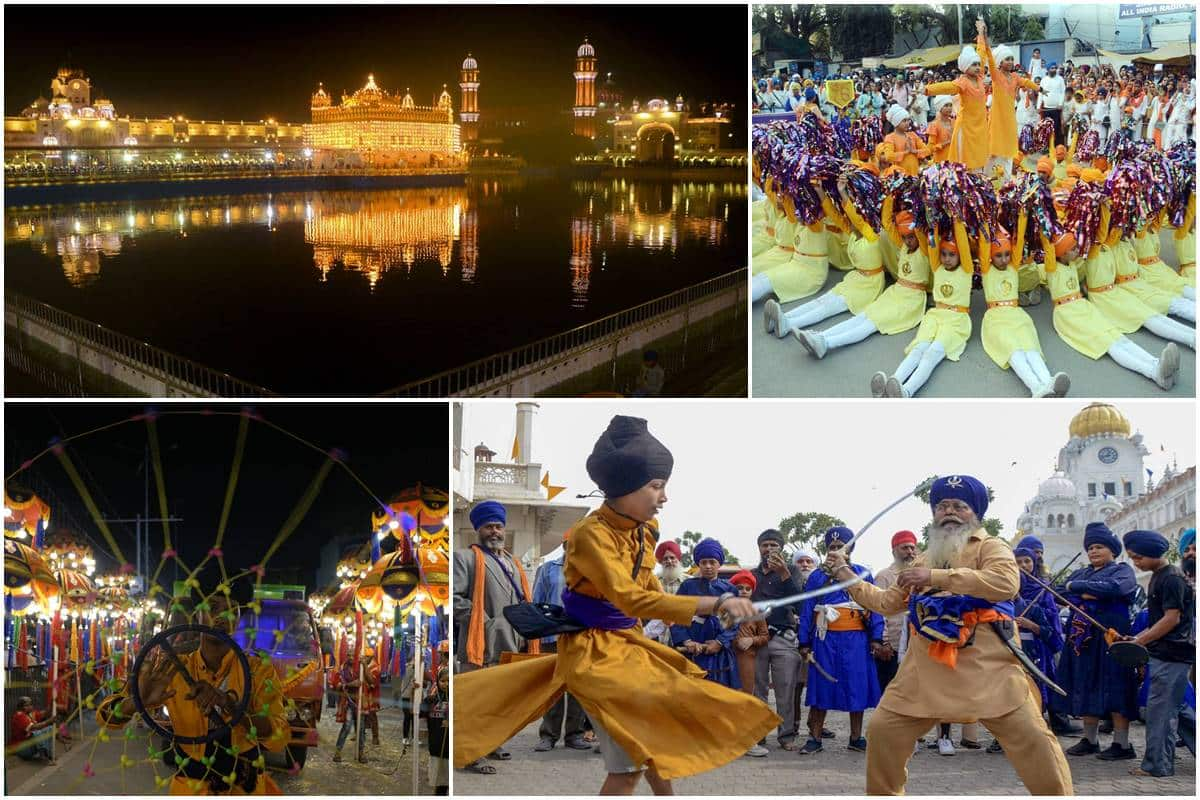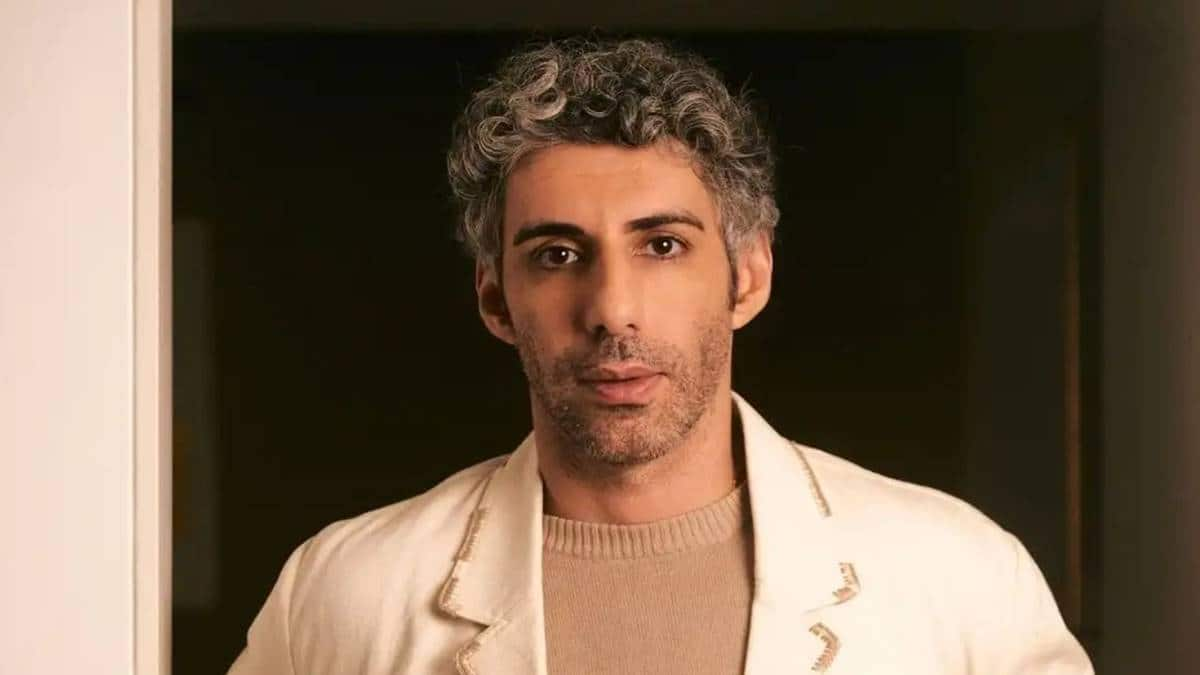Welcome to an exclusive interview with the charismatic and immensely talented Bollywood actor, Jim Sarbh. As he graces the global stage with his remarkable contributions to the world of entertainment, we delve into the excitement surrounding his recent Emmy Award nomination. From his entrancing performances to his captivating presence, Jim has carved a unique niche for himself in the film industry. Join us as we explore the intricacies of his journey, the challenges he’s overcome, and the artistry that has propelled him to international acclaim.
In this candid conversation, Jim Sarbh opens up about his experiences, aspirations, and the profound impact of his craft on the cinematic landscape. Excerpts from the interview:
How did you find out about the nomination? What were you doing at that moment and what was the reaction? Let us live that moment…
I had returned soaking wet from a very sweaty basketball game followed by a very rain-soaked bicycle ride back home. When I was in the shower, Abhay Pannu sent me a message, (he was on set so he couldn’t call). Nikkhil Advani called me twice, and he broke the news on the phone. My first reaction was confusion and awkwardness, to be honest, because I had entirely forgotten we had applied, and I had no idea they were being announced on the 26th. When I got the news, I was also (an hour) late to watch Dirty Harry with my Parsi neighbour Viraf Patel (how baug Parsi of me), so I rushed up apologetically and tried to ignore all the incoming calls. I was not successful. I will have to watch Dirty Harry again, or maybe Akela? Or maybe the best film about disillusionment with the system: Ardh Satya. Anyway, I digress. The initial awkwardness gave way to excitement very quickly.
Working with the range of directors you have worked with, from Ram Madhvani to Sanjay Leela Bhansali, Zoya Akhtar, and Neeraj Ghaywan, does it take a while to adjust to different rhythms?
I enjoy working with different directors and different rhythms because if you submit to their process, you can access different things within you, and learn new things about what works within their particular film universe. Every one of these extremely talented directors has their idea of ‘good acting,’ and although there is a lot of overlap between their definitions, there are also things particular to each style. For example, Mr. Bhansali loves an otherwise classic style of acting, stillness, and gravity and slightly pitched, but he particularly gets excited if you can achieve that and throw in a little mischief, a little glint in the eye, a little turning up of the mouth, a smile that just touches the eyes lightly, etc., etc. Ram Madhvani loves a character that seems to fit within the natural realistic range of acting but can use that style of acting to still be dramatic and surprising.
Committing to their definition and style means you flow with their cinematic universe and also gives you an approach you can add to your backpack of tricks.
Jim, how did it all start? When did you realise that you wanted to become an actor? Do you remember your first audition?
I was obsessed with television; I could watch anything. I suppose it has all flowed from there. There was no eureka moment, it’s just that nothing else quite caught my attention in the same way. Stories, telling stories, being a part of telling stories, getting to live a hundred lives in one, observing like a sponge, capturing attention, being a vessel for something larger than yourself…
I think my first audition was for a Hero Cycles ad. I got the part. “Why must I always win? Hero Cycles Y Generation Bikes.” Something like that. Good to remember ad taglines have always been silly. Why must I always win? God’s sake.
You’ve played some real characters and essayed real-life stories like Padmaavat, Sanju, Neerja, and Rocket Boys. Tell us something about that.
Truth is stranger than fiction, I suppose. There is a treasure trove of fascinating Indian stories out there. Real stories we can all take inspiration from. I am glad filmmakers are mining these depths, and allowing these stories to spread further and wider through their craft.
What if you could meet Homi J Bhabha and ask him something?
I wouldn’t want to. I’d want to sit at a table close to his, quietly, and observe him without him realizing it. I’d want to be a voyeur to his private life. I wouldn’t want the pressure of interacting with someone I admire so much. I would be a mess.
I recently met Luca Guadagnino. I know the feeling when people come up to me and say they admire my work, and I smile and nod. Sometimes they say very touching things, and I try to hide my embarrassment, and I smile and nod, tongue-tied. When I was younger, I would have gone up to him, and said, ‘I love your work. Everything you do. It makes sense that your favourite genre of film is horror because all of your love stories are horror films. The horror of love. The pain of love and incredibly close ties. Love in the Time of Cholera, have you read it? Your work reminds me of the spirit of that book. That a lovesick person is indistinguishable from someone suffering from Cholera. I am an actor. I would love to be in any of your films. I would rip an arm off to be in one of your films.”
Instead, since I am older and more jaded, and more tired by and of the world, all I could muster was. ‘I love your work.’ He smiled and nodded.
How do you look back at your journey? What kept you going?
Whether anyone said anything or not is immaterial really. What kept me going was being offered new work. So, one foot in front of the next. A new project to work on. A new character to try to develop. A new script to unravel. A new set of people to interact with. Work keeps you going. One foot in front of the other, and soon the mountain is behind you.
How important is it for you to play a lead? Or do you feel that the character should be important?
Leads are nice, particularly because we are lead-obsessed. If we were more obsessed with storytelling itself; If the devotion was towards storytelling, we wouldn’t have phrases like ‘scene stealers’ ‘character actors’, etc. Everyone would be necessary and important, in devotion to telling the story in the best possible way. But glory is a hard master, and so we are devoted to glory, to fame, and not to storytelling. Therefore, respect flows mostly to the lead, they are mounted as the most important aspect of the film, they are encouraged on set and in the edit to shine, and people around them can be used as props to ensure this.
I hope the day comes when the ensemble film is valued just as much as the superstar film because the story is the superstar.
What are your criteria for saying yes to a film or a series?
The script, the director, the producer, the character. In changing order depending on the scale/particularities of the project.
At this stage in your career, you can probably afford almost everything. I want to know if you still waiting for discounts or looking at the price tags. How do you manage your finances?
I cannot afford almost everything. After an incredible upbringing and education, my parents believed enough was enough, haha, so I have been financially independent since college. It has taken me a while, the initial few years doing theatre were rough, but I now do enjoy financial security and independence, which I think is important. I can fly somewhere if I wish, and I can start little passion projects if I wish, and that autonomy is something I very much enjoy.
I don’t necessarily wait for discounts, but I do look at price tags. If my heart is set on something expensive, I will get it, and then tighten the drawstrings until I have made that money back again.
I invest regularly, and I hope to continue to.
What’s next?
Well, I just started a YouTube channel – in preparation for a passion project that Zoya Hussain and I have been working on for a while. I can’t tell you much more, but anyone reading, please do subscribe to my channel on YouTube, because we want the episodes to reach as many people as possible, when we release them in December.





